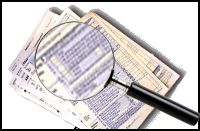What is Forensic Accounting?
Forensic accounting is the practice of using accounting, auditing, and investigative accounting skills to assist in legal proceedings. Forensic literally means “used in a court of law” or for “public debate”. When we combine accounting skills with legal knowledge, it is called forensic accounting.
A Brief History of Forensic Accounting
Accountants have been using their investigative skills almost since the dawn of time. Some of the earliest accounting records date back over 7,000 years to ancient Babylon, Assyria and Sumeria where accounting was used to track agriculture. Likely, even back then, people were concerned about not getting short-changed in their business and financial lives.
Modern forensic accounting has its earliest reference in 1824 in an accountant’s advertising circular in Glasgow, Scotland. Special accountants gave testimony in court and in arbitration proceedings. Interest in forensic accounting spread through the United States and England early in the twentieth century. One of the first institutions to use the services of such investigative accountants was the IRS. The story of Al Capone the famous mobster being caught on a tax evasion scheme is well-known. Of course even today, the IRS continues to use forensic accountants in pursuing tax cheats among business, sports and entertainment celebrities including Woody Nelson, Nicholas Cage, and Wesley Snipes.
As a profession, forensic accounting continued to grow during the latter half of the 20th century, until today, when almost no successful business litigation claims is made without the assistance of a forensic accountant.
Modern Forensic Accounting
Modern forensic accounting focuses on 3 main areas: litigation support, forensic accounting investigation, and dispute resolution.
Litigation Support
 Legal litigation support represents the descriptive presentation of financial issues related to existing or pending legal proceeding. The forensic accounting professional determines damages sustained by parties involved in legal disputes and can assist in resolving disputes, even before they reach the courtroom. If a dispute reaches the courtroom, the forensic accountant may testify as an expert witness.
Legal litigation support represents the descriptive presentation of financial issues related to existing or pending legal proceeding. The forensic accounting professional determines damages sustained by parties involved in legal disputes and can assist in resolving disputes, even before they reach the courtroom. If a dispute reaches the courtroom, the forensic accountant may testify as an expert witness.
Forensic Accounting Investigation
Forensic accounting investigation is the process of deciding whether criminal matters such as internal employee theft, securities fraud (including falsification of financial statements), identity theft, and insurance fraud have occurred. As part of the forensic accountant”s work, they may recommend actions that can be taken to minimize future risk of loss. Forensic accounting investigation may also occur in civil matters. For example, the forensic accountant may search for hidden assets in divorce cases.
Forensic accounting involves looking beyond the numbers and grasping the substance of situations. It”s more than accounting…more than detective work…it”s a combination. In short, forensic accounting requires the most important quality a person can possess: the ability to think.
I began my accounting career with Price Waterhouse Coopers as a forensic accountant reviewing and investigating financial statements of some of the world’s largest corporations. As a forensic accountant, I have almost 30 years of experience, and I know that my expertise can definitely assist you with your investigative research in your personal or corporate accounting needs.
Call us today at 713-661-1040 and let me put our forensic accounting experience to work for you.
Connect With Trippon & Co CPAs
YoutubeFacebookLinkedinGoogle +